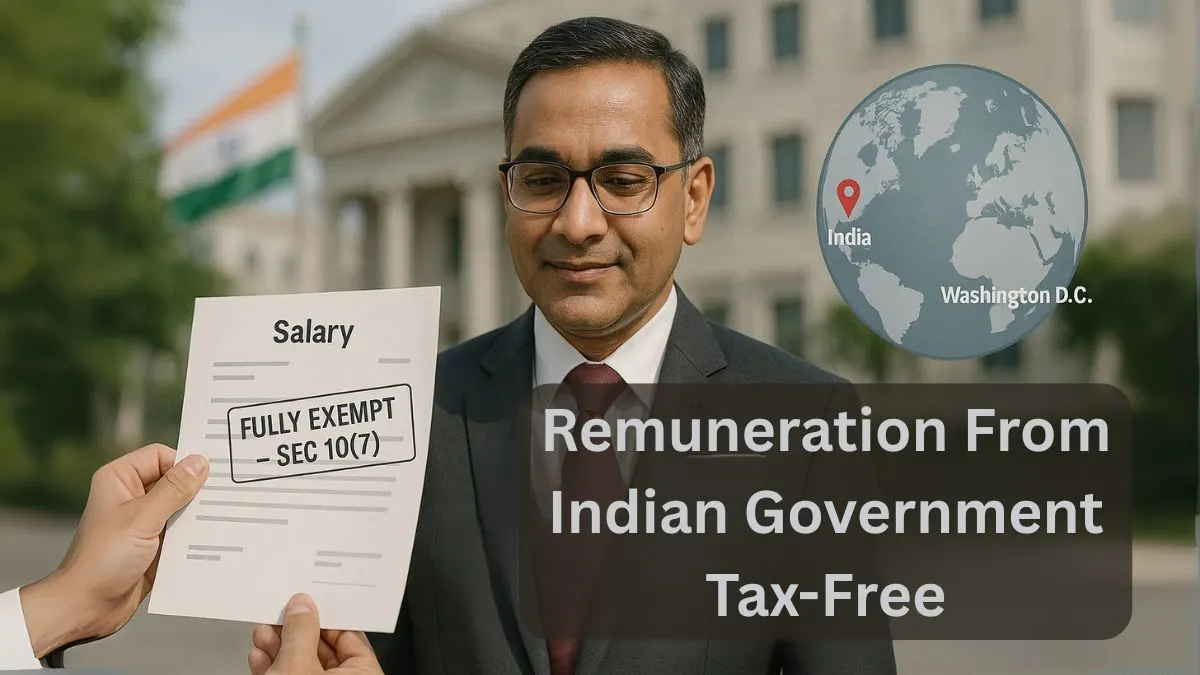
When it comes to understanding the exemptions available under Indian tax law, Section 10(7) of the Income Tax Act often comes up, especially among salaried professionals working with the government outside India. This provision is part of a broader set of exemptions under Section 10 of the Income Tax Act, which defines incomes not included in total revenue for taxation purposes.
If you're a government employee posted abroad, it's important to know that your foreign allowance may be income deemed to be received, yet it could still be exempt from tax under certain conditions.
So, what exactly does Section 10(7) say?
What is Section 10(7) of the Income Tax Act?
Section 10(7) of the Income Tax Act provides tax exemptions on allowances or perquisites provided to government employees serving outside India. Simply put, the foreign allowances granted by the Indian Government to its employees posted overseas are not taxable under Indian income tax laws.
This makes Section 10(7) incredibly relevant for diplomats, defence personnel, or any public servants on international assignments.
How is Section 10(7) different from other exemptions under Section 10 of the Income Tax Act?
Unlike other provisions like Section 10(10) for gratuity or Section 10(10AA) for leave encashment, Section 10(7) focuses exclusively on those representing India in a foreign country. That makes it a unique yet powerful exemption in the tax framework."
While the maximum limit under Section 10 of the Income Tax Act varies depending on the specific clause, Section 10(7) does not impose such a limit. The entire foreign allowance, as long as it is received from the Indian Government, can be exempt.
Is Income Tax Section 10(7) Relevant for Private Employees?
No. This exemption is specifically meant for government employees. Private employees working abroad for MNCs or startups cannot claim this exemption. However, other clauses like those covering gratuity, leave encashment, or medical reimbursement may be relevant to them.
Why Does It Matter?
As an Indian government employee posted overseas, understanding this provision could mean saving a substantial amount on taxes. Remember, income from these foreign assignments is often significant, & the ability to claim tax exemption on allowances & perquisites is a considerable relief.
This is not just about saving money; it’s about knowing your rights.
Is There a Need to File Even If It's Exempt?
Yes, it’s always a good idea to file your return & disclose exempt income. Not only does it show transparency, but it also helps in creating a clear tax history.
Even though income deemed to be received is exempt under this section, mentioning it in your ITR strengthens your financial profile for loans, visas, or other official purposes."
Final Words
Navigating Indian tax laws can be overwhelming, especially when dealing with exemptions under various clauses like Section 10(7), 10(10), or 10(10AA).
Want to know how much you can save through such exemptions?
👉 Talk to a verified tax expert today on Callmyca.com — we simplify taxes so you don’t have to!











